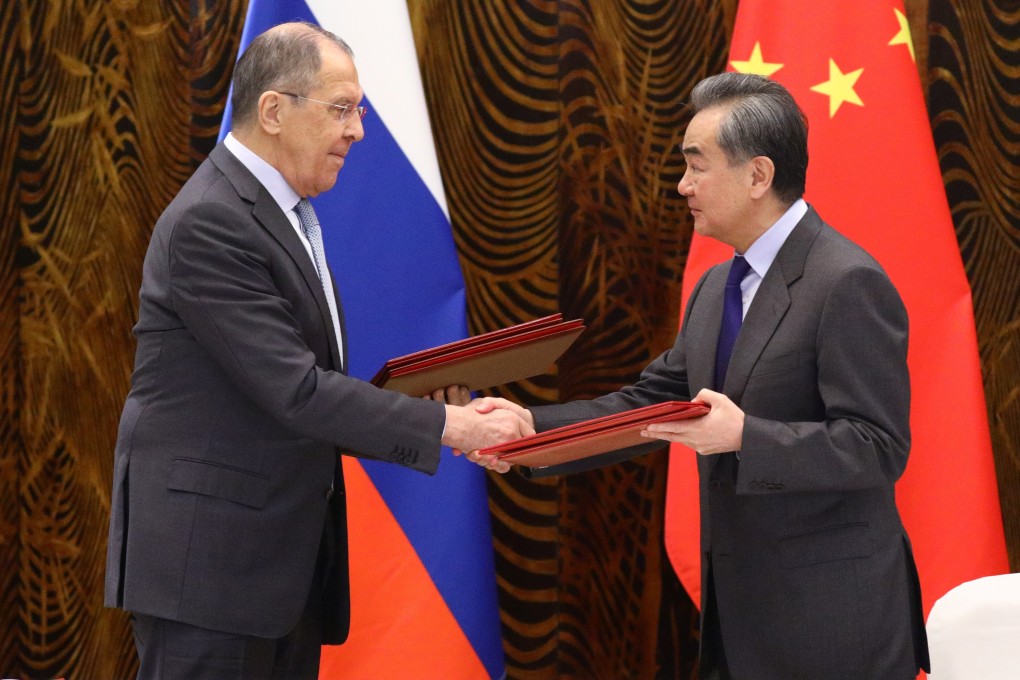Advertisement
China, Russia agree to work together against ‘illegitimate’ sanctions
- Foreign ministers meeting in Guilin also call for a summit of permanent members of the UN Security Council to resolve ‘common problems’
- Wang Yi says Western powers can no longer interfere by ‘making up stories’, while Sergey Lavrov hits out at ‘destructive’ Cold War tactics
Reading Time:3 minutes
Why you can trust SCMP
45

Beijing and Moscow agreed to push back against pressure from Washington during talks in China, with Russia’s foreign minister denouncing “illegitimate” sanctions imposed on them by the US and its allies and “destructive” Cold War tactics.
Meeting in the southern city of Guilin on Monday and Tuesday, Chinese Foreign Minister Wang Yi and his Russian counterpart Sergey Lavrov agreed to “work together against sanctions”.
They also called for a summit of permanent members of the UN Security Council to resolve “humankind’s common problems” at a time of heightened global political turbulence.
Advertisement
In addition, they proposed a new dialogue platform be set up to address regional security concerns.
“[Western powers] should know that the days when they can arbitrarily interfere in China’s internal affairs by making up stories and lies are long gone,” Wang said during the talks, according to a Chinese foreign ministry statement.
Advertisement
The meeting took place after the European Union on Monday announced sanctions on four Chinese officials and an entity over human rights violations in Xinjiang, which was followed by a similar announcement from the US, Canada and Britain.
Advertisement
Select Voice
Select Speed
1.00x